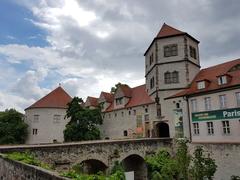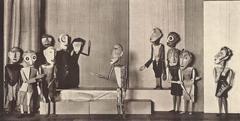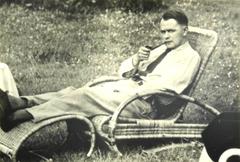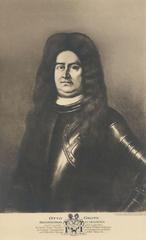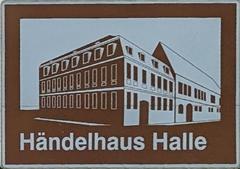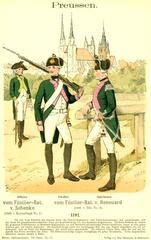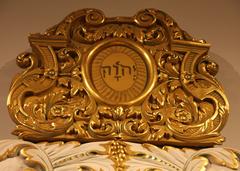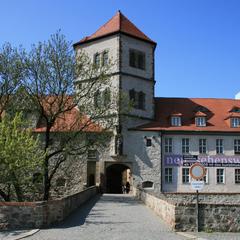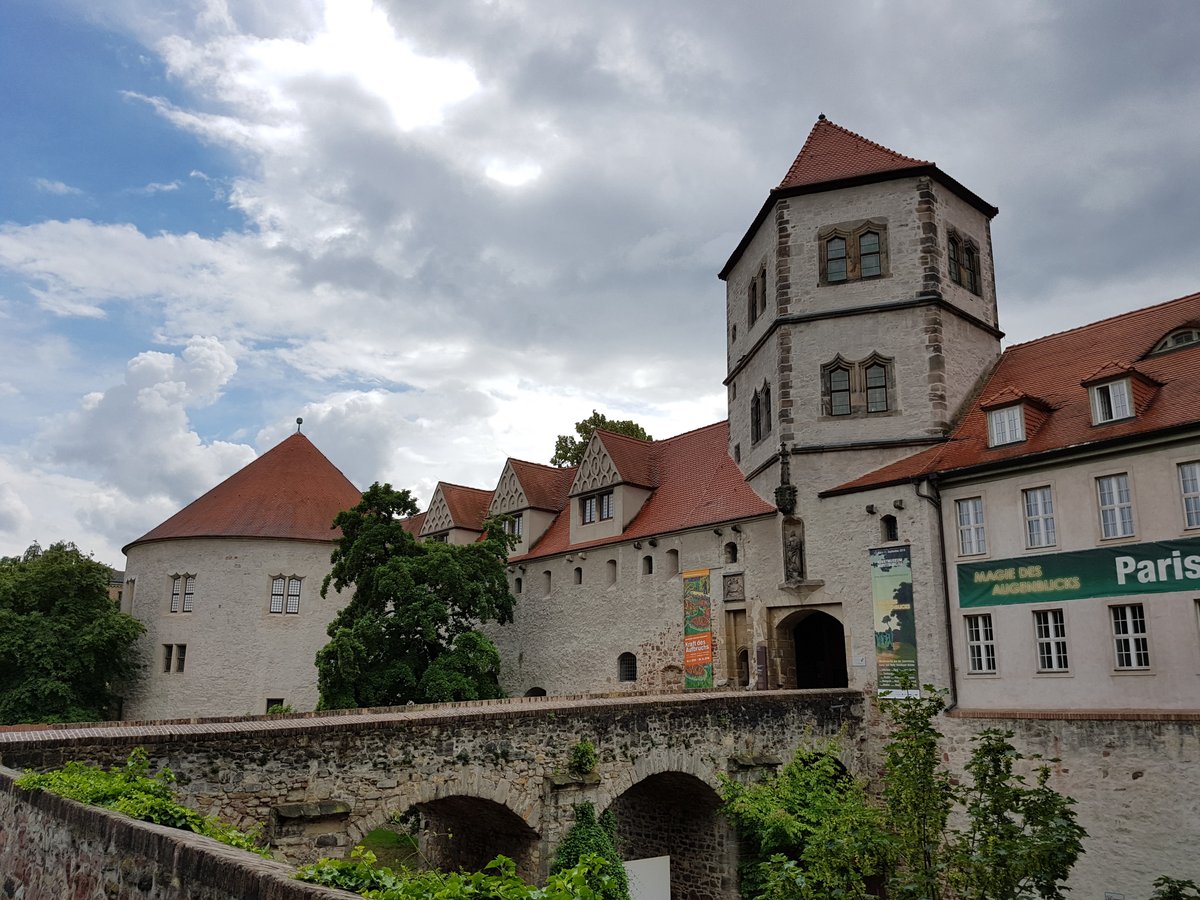
Moritzburg Art Museum: Visiting Hours, Tickets, and Historical Overview
Date: 14/06/2025
Introduction
Located in the heart of Halle (Saale), the Moritzburg Art Museum is a renowned cultural institution that unites over five centuries of history with a dynamic art collection. Housed within Moritzburg Castle—a landmark originally constructed in 1484 as a fortified Renaissance residence—the museum offers visitors a distinctive environment where Gothic and Renaissance architecture harmoniously blends with contemporary extensions by Nieto Sobejano Arquitectos. This setting provides a compelling backdrop for masterpieces of German Expressionism, 20th-century Modernism, and thought-provoking contemporary exhibitions.
With highlights by Ernst Ludwig Kirchner, Emil Nolde, Franz Marc, and Bauhaus icons such as Paul Klee, the museum’s collection is a testament to its early 20th-century visionaries. Alongside its permanent displays, Moritzburg hosts critically engaged special exhibitions, educational programs, and multilingual guided tours. Strategically positioned near the Saale River and Halle’s historic attractions—including Handel House and the Francke Foundations—the museum also prioritizes accessibility through digital tools like the Audiala app, ensuring an enriching experience for all.
This guide presents an in-depth look at the Moritzburg Art Museum’s history, architectural evolution, collections, and essential visitor information, serving as a resource for travelers, students, and art enthusiasts alike (Kunstmuseum Moritzburg, Nieto Sobejano Arquitectos, Werkleitz Planetary Peasants Exhibition).
Table of Contents
- Introduction
- Historical Background
- Architectural Significance
- Collections and Exhibitions
- Visitor Information
- Accessibility & Services
- Guided Tours and Educational Programs
- Special Events and Community Engagement
- Travel Tips & Nearby Attractions
- Frequently Asked Questions (FAQ)
- Plan Your Visit
- References
Historical Background
Medieval and Renaissance Foundations
Founded in 1484 by Archbishop Ernest II of Saxony, Moritzburg Castle was designed as both a fortress and a princely residence. Its architecture reflects a transitional period from Gothic to Renaissance styles, with features such as a quadrangular layout, defensive towers, and ornate stonework. Over the centuries, the castle served as the seat of powerful archbishops before suffering significant damage during the Thirty Years’ War, leaving parts of the structure in ruin for generations.
Transformation into an Art Museum
After centuries of military and administrative use, the city of Halle acquired Moritzburg Castle in the late 19th century. By 1904, it was repurposed as an art museum, marking the beginning of its modern cultural legacy. The museum’s leadership, especially during the early 20th century, prioritized the acquisition of pioneering Modernist and Expressionist works.
Modern Renovations
From 2005 to 2008, a major renovation led by Nieto Sobejano Arquitectos introduced award-winning glass and steel extensions. These interventions preserved historical elements while creating contemporary exhibition spaces, earning accolades such as the German Architecture Prize (Nieto Sobejano Arquitectos).
Architectural Significance
Moritzburg Castle’s architecture exemplifies the dialogue between history and innovation. Visitors encounter medieval fortifications, Gothic chapels, and Renaissance halls juxtaposed with minimalist modern galleries. The restoration philosophy purposefully retains traces of war damage and centuries-old stonework, while transparent glass roofs and steel structures flood the interiors with natural light. This unique blend enhances the museum experience, allowing guests to appreciate both the art and the remarkable setting.
Collections and Exhibitions
German Expressionism and Modernism
The museum’s collection is particularly noted for its strengths in German Expressionism and 20th-century Modernism. Key holdings include works by Die Brücke artists—Kirchner, Heckel, Schmidt-Rottluff—and Blue Rider associates such as Franz Marc and August Macke. The Bauhaus legacy is represented by Lyonel Feininger, Paul Klee, and Fritz Winter, among others.
Contemporary and Thematic Exhibitions
Moritzburg’s curatorial strategy arranges galleries thematically, highlighting the artistic response to Germany’s turbulent 20th-century history. The museum actively addresses its institutional history during the Nazi and GDR periods through critical exhibitions and educational programming.
Notable Special Exhibitions
- “Frührenaissance – Mitteldeutschland am Vorabend des Bauernkriegs” (Early Renaissance – Central Germany on the Eve of the Peasants’ War): Examines art and society before the Reformation, with masterworks by Dürer and contemporaries (SIMS Kultur).
- “Planetarische Bauern” (Planetary Peasants): A contemporary art project engaging with the legacy of the Peasants’ War and agricultural themes through site-specific installations and artist residencies (Werkleitz).
Visitor Information
Opening Hours
- Tuesday–Sunday: 10:00 AM to 6:00 PM
- Closed Mondays (except public holidays)
- Extended hours may apply during special exhibitions—check the official website for updates.
Tickets & Admission
- Adults: €8
- Reduced (students, seniors): €5
- Children under 18: Free
- Family ticket (2 adults + up to 3 children): €18
- Group discounts and guided tour packages are available by advance booking.
Tickets can be purchased online via the official website or at the museum entrance.
Location & Getting There
- Address: Moritzburg 1, 06108 Halle (Saale), Germany
- By train: 15-minute walk or short bus ride from Halle (Saale) Hauptbahnhof
- By car: Nearby paid parking available
- By public transport: Tram and bus stops within walking distance
Accessibility & Visitor Services
The museum is committed to inclusivity:
- Wheelchair accessibility: Elevators, ramps, and accessible restrooms throughout
- Assistance: Contact in advance for personalized support
- Facilities: Café, museum shop, cloakroom, and free Wi-Fi in public areas
Guided Tours and Educational Programs
- Guided Tours: Available in German and English; bookable for individuals, families, and groups. Thematic tours cover periods from Gothic to Modernism and current exhibitions (Triplyzer).
- Workshops: Hands-on art activities for all ages, often linked to current exhibitions or historical themes. Advance registration is recommended.
- School and University Partnerships: Curriculum-linked tours, research projects, and internship opportunities foster deeper engagement (Volunteeringermany.org).
- Digital Resources: Audio guides, virtual tours, and interactive displays accessible via QR codes and the Audiala app (Kunstmuseum Moritzburg).
Special Events and Community Engagement
- Artist Residencies: Projects like “Planetary Peasants” promote contemporary engagement with historical themes (Werkleitz).
- Cultural Festivals & Citywide Events: The museum participates in the Long Night of Museums and Halle Salt Festival, among others.
- Community Outreach: Inclusive programs for refugee and migrant audiences, multilingual tours, and themed family days.
Travel Tips & Nearby Attractions
- Arrive early on weekdays to avoid crowds.
- Combine your visit with Halle’s Old Town, Market Square, Handel House, and the Francke Foundations.
- Explore the castle grounds and sculpture park for panoramic views of the Saale River (Triplyzer).
- Use the Audiala app for interactive maps, digital guides, and up-to-date event info.
Frequently Asked Questions (FAQ)
Q: What are the Moritzburg Art Museum’s opening hours?
A: Tuesday to Sunday, 10:00 AM – 6:00 PM. Closed on Mondays. Check for seasonal updates (official website).
Q: How much do tickets cost?
A: Adults €8, reduced €5, children under 18 free, family ticket €18.
Q: Is the museum wheelchair accessible?
A: Yes, with elevators, ramps, and accessible restrooms.
Q: Are guided tours available in English?
A: Yes, advance booking is recommended.
Q: Is photography allowed?
A: Non-flash photography is permitted in most areas; some special exhibitions may have restrictions.
Q: Can I bring children?
A: Yes; family-friendly programs and free admission for children under 18 are available.
Plan Your Visit
The Moritzburg Art Museum is a must-visit destination for anyone interested in the intersection of history, architecture, and the visual arts. For the latest updates on exhibitions, ticketing, and events, consult the official museum website and download the Audiala app for enhanced digital experiences. Combine your museum visit with a stroll through Halle’s historic center for a truly immersive cultural journey.
References
- Kunstmuseum Moritzburg: Moritzburg Castle and Museum Guide
- Official Moritzburg Museum Website
- Visitor Information: Hours & Tickets
- Special Exhibitions and Programs
- Nieto Sobejano Arquitectos: Moritzburg Project
- Werkleitz: Planetary Peasants Exhibition
- SIMS Kultur: Frührenaissance Exhibition
- Triplyzer: Things to Do in Halle
- Volunteeringermany.org: Internship Program
